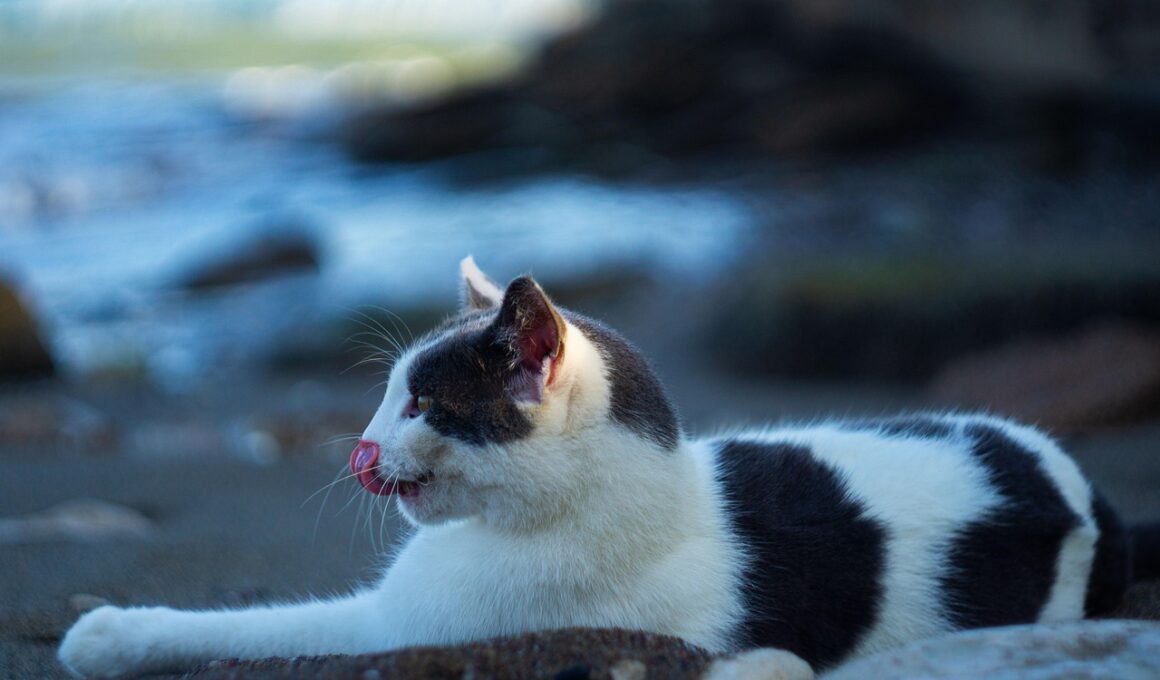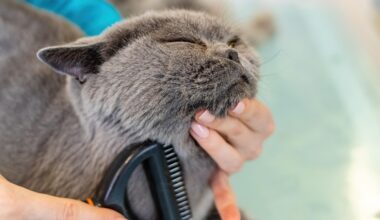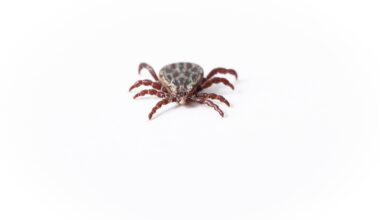How to Recognize Early Signs of Feline Infectious Diseases
Feline infectious diseases present a significant risk to cats of all ages, making it crucial for pet owners to understand the early signs. Recognizing these signs can lead to timely veterinary intervention, ultimately saving a cat’s life. Common symptoms often include changes in appetite, lethargy, and unusual behaviors. Cats may also exhibit symptoms such as vomiting, diarrhea, or frequent sneezing. Owners should be on alert for any signs of discomfort and take immediate action. Another important aspect to consider is the overall grooming behavior of the cat. Cats typically groom themselves frequently, and any significant changes in this habit can indicate health issues. Moreover, sudden weight loss or weight gain should not be ignored, as these are clear indicators of potential health problems. Additionally, you should monitor your cat’s drinking habits; increased or decreased thirst can signal serious underlying health concerns. To effectively observe these changes, keep a daily log and communicate any findings to your veterinarian. Early detection is vital, so proactive monitoring ensures that owners can act quickly when they notice something seems off with their beloved feline companions.
Another common sign of feline infectious diseases includes abnormal discharge from the eyes or nose, which could signify an upper respiratory infection or other serious condition. You should also closely monitor for increased aggression or withdrawal behaviors, as these can indicate stress or discomfort resulting from illness. Additionally, many infectious diseases cause fever, which may not always be apparent. Observing your cat’s activity levels and general demeanor can provide clues about its health. You might also consider scheduling regular veterinary check-ups to ensure your cat’s overall welfare and early detection of any concerning symptoms. Vaccination is a critical part of preventative care; ensuring that your cat is properly vaccinated against common diseases such as feline leukemia and feline panleukopenia is essential for reducing the risk of infections. Furthermore, provide a clean living environment, as this reduces exposure to pathogens. Ensure all dietary habits are healthy and well-balanced, emphasizing high-quality cat food. It is essential to consult your veterinarian regarding any diet changes or health concerns. Overall, proactivity in observing these early signs can significantly impact your cat’s health, leading to a longer, happier life.
Understanding Symptoms and When to Act
Understanding the symptoms associated with feline infectious diseases is vital. Many symptoms can be easily overlooked, yet they hold significant importance concerning your cat’s health. For instance, isolation from family members is another concerning sign. If your cat suddenly avoids interaction, it may not feel well, especially if other symptoms, such as coughing or loss of appetite, also arise. You should observe if the cat exhibits unusual vocalizations or signs of distress; these behaviors are important to monitor. Cats communicate their discomfort in various ways, and being attentive to these changes can foster timely medical intervention. Many owners may also notice alterations in coat condition; a dull or unkempt coat can indicate underlying health issues. Also, changes in litter box habits are often associated with various infections. If your cat is urinating less frequently or appears to be straining to urinate, it’s crucial to seek veterinary assistance immediately. Furthermore, be wary of respiratory symptoms such as labored breathing or coughing. Each of these observations plays a significant role in managing your cat’s health effectively and preventing infectious diseases from escalating into severe problems.
Importance of Regular Checkups
Regular checkups with a qualified veterinarian allow for early detection and management of feline infectious diseases. An annual feline wellness exam is crucial, even if your cat appears healthy. During these visits, veterinarians can perform physical examinations, administer vaccines, and conduct tests that screen for common diseases. Preventions are always better than treatments, and vaccines significantly reduce the risk of many serious diseases. By following the vaccine schedule recommended by your veterinarian, you can help safeguard your cat against infections. Moreover, during these checkups, vets can discuss dietary changes and nutritional requirements that can strengthen your cat’s immune system. A strong immune system plays a crucial role in battling infections. Additionally, the importance of parasite control cannot be emphasized enough, as fleas, ticks, and worms can compromise your cat’s overall health. It’s necessary to maintain a parasite prevention regime based on your cat’s lifestyle, environment, and health history. Regular monitoring and prompt intervention can lead to a quicker recovery in case of an illness. Ultimately, the proactive approach of regular veterinary visits fosters a healthier living environment for your cat.
It is essential to educate yourself on the potential risks of feline infectious diseases by researching and understanding them. Numerous credible resources are available online that provide insight into various feline illnesses, their symptoms, and prevention strategies. Becoming familiar with diseases such as feline viral rhinotracheitis and feline calicivirus will help you recognize warning signs. Furthermore, joining local pet owner communities can enhance your understanding of common health issues facing cats in your region. Many owners share their experiences, which can provide warnings or advice based on personal experiences. Remember that each cat is unique, and what applies to one may not apply to another, thus highlighting the importance of individualized veterinary care and monitoring. While one cat may be prone to certain infections, another may not exhibit similar risks. By developing a routine to assess your cat’s condition, you can create a preventive maintenance plan tailored to its needs. Always consult your veterinarian for customized advice regarding health management strategies and recommendations specific to your cat and lifestyle. Being informed is the first step in effective feline health management.
Nutrition and Its Role in Prevention
Nutrition plays a pivotal role in maintaining your cat’s overall health. A well-balanced diet strengthens the immune system, making your feline friend more resistant to infectious diseases. Cats require a combination of protein, fats, vitamins, and minerals for optimal health. It is crucial to select high-quality commercial cat foods formulated to meet these nutritional standards. Additionally, hydration is vital for your cat’s health, so ensure fresh water is always available. Some cats prefer wet food, which can contribute to their water intake while providing additional benefits. If your cat displays picky eating habits, exploring different food options or consulting with a veterinarian for balanced dietary suggestions is essential. It’s also important to be cautious about sudden dietary changes; cats have sensitive stomachs, and abrupt shifts can lead to gastrointestinal upset. Gradually introducing new foods can help minimize digestive issues. Also, consider occasional dietary supplements or probiotics if recommended by your veterinarian. Monitoring your cat’s weight and adjusting its diet accordingly can prevent obesity, which is a risk factor for many health issues. Proper nutrition is key in the fight against feline infectious diseases.
In conclusion, recognizing the early signs of feline infectious diseases is critical for every cat owner. The timely identification of symptoms leads to quicker treatment and improved health outcomes for your furry friend. Paying attention to subtle changes in behavior, grooming habits, and overall health is essential for maintaining your cat’s well-being. Encouraging regular veterinary visits ensures that any potential health issues are addressed promptly, and preventive measures are taken. Educating yourself on common feline ailments and their manifestations equips you to act swiftly when necessary. Also, the role of nutrition cannot be overstated; providing a balanced diet can significantly enhance your cat’s immune defenses. In addition, creating a clean living environment and employing diligent parasite control will protect your cat from exposure to infections. Finally, your commitment and dedication to monitoring your cat’s evolving health throughout its life will create a strong link between the two of you, leading to a happier, healthier feline companion. Thus, as a responsible pet owner, invest time in understanding your cat’s health needs and signs and advocate for its overall well-being.


